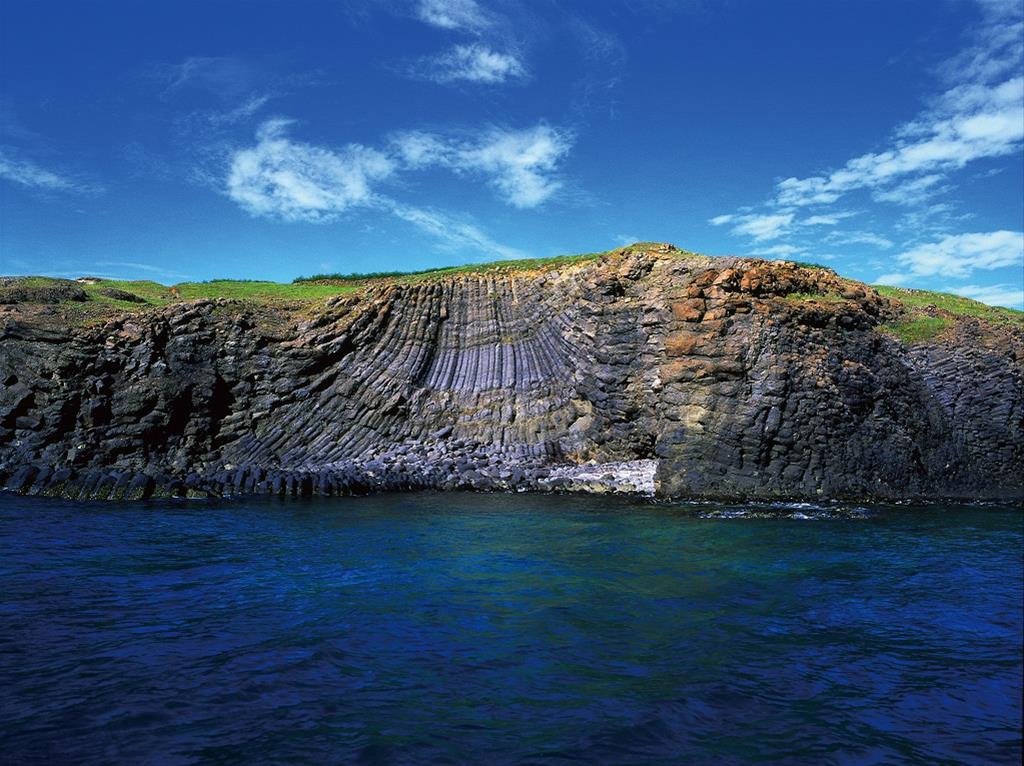Yuanbei Islet Introduction
Yuanbei Islet is located to the east of Qitou Village in Baisha Township and to the southwest of Niao Islet, near Pengpeng Beach. It is named for its shape resembling a shell covering the water surface, offering a beautiful and unique landscape. The northern coastline features well-developed basalt columnar joints, famously known as the Writer's Brush, Ink Stone, Unwritten Book, and Graphite; the northeast side of Yuanbei Islet boasts a prominent cliff of columnar basalt, with a shape narrow at the top and wide at the bottom, resembling a pleated skirt with many folds, making it highly valuable for viewing. The landmarks of Yuanbei Islet, "Writing Brush, Ink Stone, Paper, and Pleated Skirt" have not only gained fame but have also been designated as a Basalt Natural Preserve. The small hills behind the village of Yuanbei Islet provide a great vantage point for scenic views, allowing visitors to gaze at the basalt wonders along the northwest coast, making it a must-visit spot on Yuanbei Islet! During low tide, the seafloor, composed of coral reefs between Yuanbei Islet and Huxi Sag, becomes exposed. Historically, this was the pathway for the early inhabitants of Yuanbei Islet, deeply significant both marine-wise and culturally. Along the way, the intertidal zone's ecosystem and the diverse coral reef scenes have always been popular routes for intertidal ecological tours. Player's Guide: Playing in the Intertidal Zone, Eastern Sea is very popular. The sea platform outside Yuanbei Port is bustling with squid and sea bass swimming in the box net. Pufferfish frolic amidst the sea urchins and clownfish, while blue damselfish add cuteness. During low tide, visitors can walk along ancient paths from the sea to the distant islands, a journey where ancestors used frog goggles and rubber shoes to conquer the sea routes and their livelihoods, representing a feast of vitality and cultural life. However, after a hundred years of silence in the Eastern Sea, with the rise of intertidal zones and recreational fishing activities, it has brought forth leisure and laughter among tourists, making travel in the Eastern Sea increasingly appealing.
 Yuanbei Islet Village
Yuanbei Islet Village
 Yuanbei Island
Yuanbei Island


























